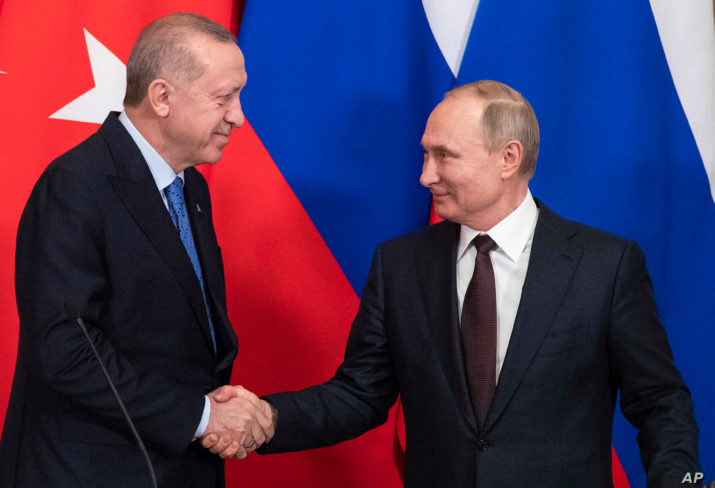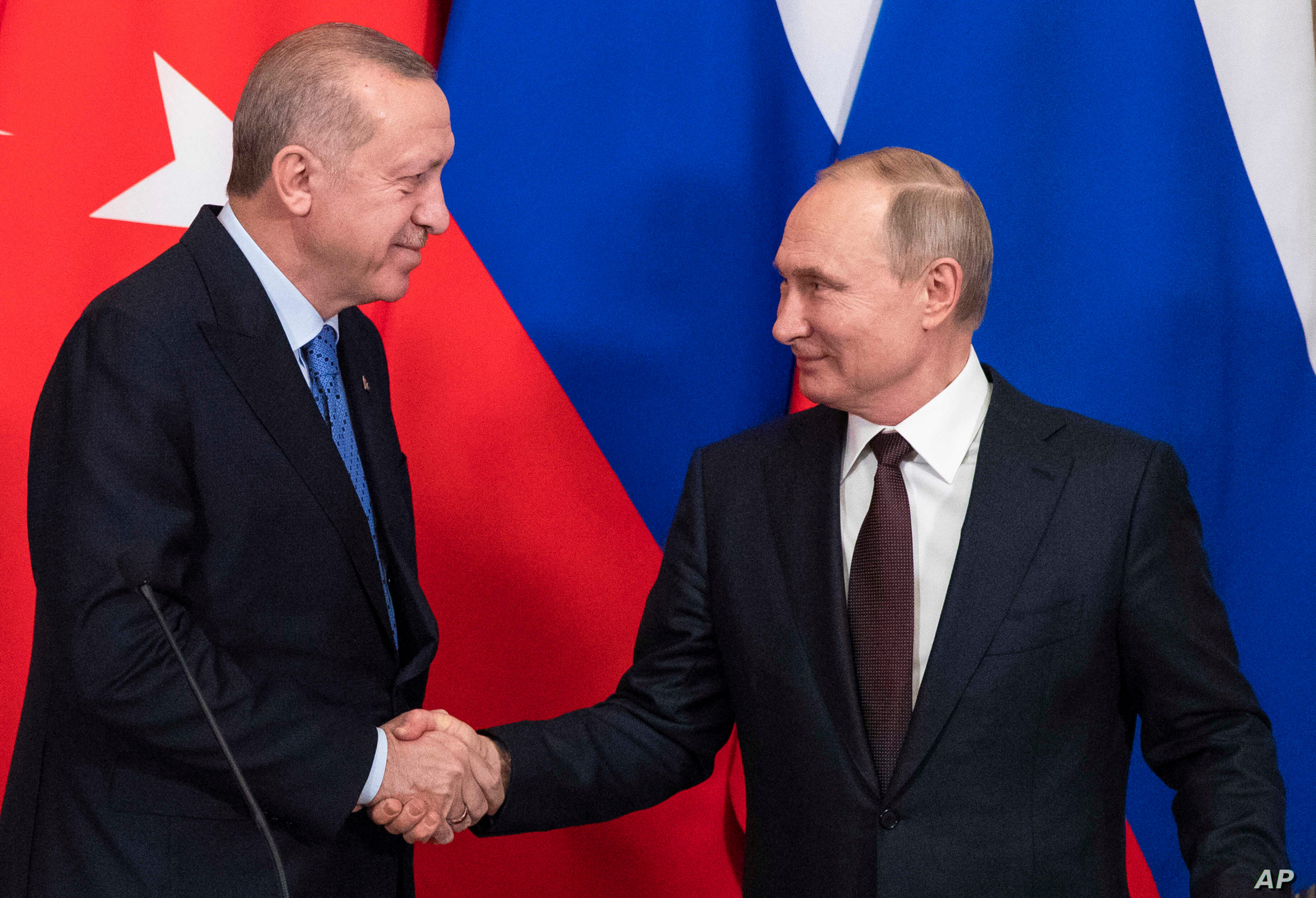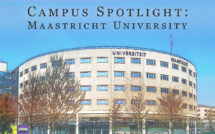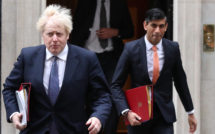

In October 2015, former European Commission Vice-President Frans Timmermans stated, “the challenge (the migrant crisis of 2015) facing the European project today, is existential.” Five years later, the crisis could be repeated if coordinated measures on behalf of the EU and Turkey will not be taken. Nowadays, the refugee crisis is starting to emerge again under the headlights of the EU agenda. Instability in Idlib province, the last rebel bastion in Syria, has caused thousands of people to flee war, desperate to find a place in the world where they will not fight every day to survive. Recep Tayyip Erdoğan opened his country’s borders to coincide with the start of Turkey’s “Spring Shield” operation against Bashar al-Assad’s regime in response to the Syrian army’s attacks on Turkish forces in the Idlib region. The EU should pay attention to the geopolitical games revolving around Turkey’s strategy.
On February 27, 2020, a squadron of Russian and Syrian fighters struck a position occupied by the Turkish army in the Idlib region, killing thirty-three Turkish soldiers. The Russians later explained that the Turks, who had come as reinforcements to oppose the Assad regime’s offensive against the last rebel-held enclave, had not reported their presence. Moreover, their location would have been indistinguishable from positions held by jihadist groups.
In reality, it is more likely that Moscow has engaged in what strategists call an “escalation towards de-escalation,[1]” quite comparable in principle to the elimination of General Soleimani on January 3, 2020 in Baghdad by the Americans.[2] In the days that followed, the Turks reacted violently, including with drone attacks, against Syrian air defense systems and units of the Syrian army and Hezbollah, and, at that time, at least two Syrian aircrafts were shot down. The Damascus offensive against Idlib was halted and the regime suffered heavy casualties—without Russia intervening and without it being natural for Russian forces to be targeted by the Turks. In other words, Russia had indeed halted the Turkish intervention in the Idlib area while allowing Recep Tayyip Erdogan to save face with the lesson his army had given to the Damascus regime. Neither Moscow, nor Ankara had any interest in prolonging the arm wrestling: the conditions were ripe for a compromise between the two players to freeze the situation. Erdogan and Putin therefore agreed in Moscow, on March 5, 2020 to a ceasefire,[3] endorsing of course the advances of the regime’s forces in the province, in particular the control of the motorway linking Aleppo to Damascus, and replacing the Sochi agreement of September 2018.[4] Parallel to this series of events, the Turkish President called for support from his Atlantic allies. Washington was sending out positive signals, but was refraining from supplying the Patriot surface-to-air missiles requested by Ankara. It was difficult for the Americans to get past the dispute between NATO and Turkey over the latter’s purchase of the Russian S-400 missiles. In his dealings with the Europeans, President Erdogan used one of the counterproductive and inhuman methods available to him: he began to send a few thousand refugees (mostly non-Syrians) to the borders of Greece and Bulgaria, immediately provoking a reaction of “rejection of Turkish blackmail” from European governments.[5]
Our world is one of rapid flight from collective perceptions: since the end of last year and even more so since the beginning of February, public opinion in Europe has been increasingly troubled by the atrocious bombardments of Russian aircraft and the Assad regime against the civilian populations of the Idlib region. The images of a million unfortunate people fleeing in the freezing cold to makeshift camps near the hermetically sealed Turkish border were beginning to shock people’s consciences. As a result, president Erdogan’s actions, all the attention of Europeans, traumatized by the 2015 episode, is once again focused on the risk of a new “migration crisis.”
The Turkish President’s visit to Moscow on March 5, 2020 led to a kind of truce between Turkey and Russia. The same Erdogan’s visit to Brussels on March 9, 2020 more or less re-established a relationship of dialogue between the EU and Turkey, probably with the promise of new European funding for the implementation of the 2016 EU-Turkey agreement on migrants. On March 18, 2016, Turkey and the European Union agreed on a comprehensive plan to reduce migration to Europe. In accordance with this agreement, the first irregular migrants were returned from Greece to Turkey on April 4, 2020. The Agreement is based on the principle that Turkey would be a safe country for asylum-seekers, refugees and any other migrants, whereas it is not even safe for its own nationals. In addition, Turkey already hosts 2.9 million Syrians out of more than 5 million who have had to leave their country.
It would be regrettable if, in the calculations of European leaders, the conflicting relationship with Erdogan on this issue were to prevail over a lucid assessment of the major geopolitical moment resulting from the battle at Idlib, which is, moreover, inseparable from the migration risk. To characterize this moment, let us first note that it is becoming increasingly clear that the war in Syria is not over. One of the issues at stake in its current phase is the fate of Turkey between Russia, Europe, and the Atlantic Alliance. Putin is treating Erdogan harshly, as we have just seen in Moscow, when the Russian media are broadcasting a video of the Turkish delegation standing in an antechamber waiting to be received by the Russian president. Putin, however, has an interest in continuing his operation to keep Turkey away from NATO. This was also illustrated by the recent Turkish purchase of the S-400, which could potentially, as some members of the Pentagon say, compromise NATO security if this system would be integrated into the alliances broader air-defense systems. It is virtually impossible to know what intelligence collection mechanisms are built into the Russian system. All of this occurs as there are further Turkish disagreements with the US and the European Union, mainly regarding the support for Kurdish fighters in northeastern Syria, who are believed to be linked to Kurdish terrorist separatist groups operating in Turkey with links to the PKK (The Kurdistan Workers’ Party). Therefore, Erdogan gives the impression that he is ready to make many concessions with the Russian president. On the one hand, driven by resentment towards the West, on the other hand, because it is Russia that has the means to get Erdogan out of the Syrian mess he has got—or on the contrary to raise the cost of Turkey’s armed engagements in the neighboring country.
Finally, the Moscow agreement of March 5, 2020 offers Recep Tayyip Erdogan only a respite. There will be a second round in the battle of Idlib. In Syria, the ceasefire in Idlib, although precarious, is probably more durable (under Russian influence in particular) than would have been the case in the absence of the health crisis; however, Turkey continues to reinforce its military means in Idlib and the Syrian regime has also carried out demonstrations of force; in the areas controlled by the regime, it is often warlords who take the law into their own hands. Moreover, it is not completely certain that the Russian-Turkish agreement can really be implemented. Some of its provisions—such as the secure corridor cutting the zone in two along the East-West axis and to be monitored by Russian-Turkish patrols—seem unrealistic. Above all, the Assad regime remains determined to re-conquer the entire province.
The Russians will be inclined to follow him on this point for a variety of reasons, including the fact that among the 40,000 to 50,000 rebels who remain in the part of Idlib province still under Turkish control, many are jihadists affiliated with al-Qaeda, and not just in the large battalions of Tahrir Hayat al-Sham (HTS). Some particularly harmful (Russian-speaking) groups more or less directly threaten the Russian bases in Hmeimim and Latakia. This is, moreover, where Erdogan’s great weakness vis-à-vis Putin lies. In Sochi, in September 2018, the Turkish President undertook to “sort out”the jihadist armed groups from the others in order to turn the latter against the former. However, Turkey has failed to do so.
There is also a suspicion that it has not really made an effort to do so, as its relations with many of these groups appear ambiguous. Under these circumstances, the future of the agreement seems relatively predictable. The ceasefire, under unchanged conditions, is unlikely to hold. Once the regime has regained its strength, it will resume the military retaking of Idlib province and it will again be supported by the Russians. The Turks may again cross swords, as they did with undoubted effectiveness in February. In this respect, can they really cope with a Russian force deployment if Putin decides to end it this time? Will Ankara have no choice but to try to obtain a new security corridor, this time along its border, in order to keep this minimum acquis of a buffer zone, intended to prevent a mass arrival of Syrian refugees (3.5 million of them survive in the Idlib region)? This is, in any case, the scenario that Westerners should reflect on. It brings with it a probability of large-scale massacres given Assad’s and Russia’s strategy of targeting civilian populations and also of resistance by armed groups. It also carries two major dangers: on the one hand, major population displacements (and infiltration by terrorists), as the Turks may not be able to plug the inevitable breaches in their borders. For the sake of humanity alone, one must hope that such gaps will exist—but Erdogan will not hesitate to open the floodgates to Europe as well. On the other hand, whatever form the reconquering of Idlib by the regime and its sponsors takes, there is a very high risk that it will result in maximum resentment on the part of Recep Tayyip Erdogan towards his allies, whom he will not fail to accuse of treason.
After what has just happened in the province of Idlib, the Europeans, like the Americans, should stop turning their eyes away from the Syrian crisis by counting on a rapid end to it, with one last spasm causing the lid to fall definitively on the Syrian people. Moreover, the geopolitical moment that has just been mentioned reopens a possibility of action. One of the lessons of recent events is that Europe needs Turkey and Turkey needs its Atlantic allies. Erdogan’s exclusive tête-à-tête with Putin puts the former in the hands of the latter. It is in this spirit that Chancellor Merkel has proposed the establishment of a no-fly zone, banning military air operations over Idlib. This long-standing idea comes up against the fact that Russia certainly has no intention of depriving itself of control over a fraction of the airspace. Is it not time, however, for an at least partial re-engagement of Europeans with Turkey and a re-engagement in the Syrian issue?
Considering the past evolutions in the areas, I believe that there are three possible future scenarios:
Re-engagement with Turkey
The angle through which a more productive dialogue with Ankara could be resumed would be to provide Turkey with concrete support for the implementation of the Moscow agreement on Idlib. Perhaps NATO can, for example, help Turkey strengthen its defenses for the next showdown. A considerable effort is also needed on the humanitarian front. The area where, however, Turkey’s allies or a coalition of them could make a real difference would be in providing technical support in the difficult task of sorting out the armed groups and fighting HTS and other jihadists. If the Turkish Government does not clarify its strategy in this area and, to put it bluntly, does not cut the Gordian knot of its dangerous connections, the inevitable resumption of the battle of Idlib can only end badly for it.
Partial reengagement
Supporting Turkey on Idlib does not mean giving it a discharge for all the disputes that Recep Tayyip Erdogan, in the course of his external adventures, has multiplied with his Atlantic allies. Support for Idlib would put the Westerners in a better position to raise with the Turks—and especially with the Turkish public and political class, where Erdogan is more and more isolated—the “questions that annoy:” Turkish policy in the Syrian Northeast, the S-400 missile, violation of Cypriot sovereignty, intervention in Libya and especially the vile arms embargo.
A re-engagement in the Syrian file to restart political dialogue
If Europeans should abandon the illusion of a quick end to the game in Syria, President Putin should also see that the conclusion of his campaign in Syria may prove to be really difficult. In Idlib, in recent weeks, we have moved away from the pattern in which Russia has almost sole control over the balance of power. Perhaps the time has come for Putin to enter into real negotiations, as he alone is capable of reconciling his own agenda with those of Turkey and the West. If they are able to support the Turks on Idlib and if the Trump administration maintains its policy of strangling the Assad regime (“Caesar Act”), it would be in the interest of the West to take the initiative again with a view to a political settlement.
Four years later, this bilateral arrangement has revealed all its shortcomings: the hotspots have never ceased to be congested, leaving thousands of people living in degrading and inhuman conditions. As the war in Syria rages on and again displaces hundreds of thousands of people, the Turkish President has carried out the threat repeatedly. He announced at the end of February 2020 that he would cease to be the gendarme of part of the EU’s external borders. The response of Greece, the member states and the EU was not long in coming: supposedly outraged, they did not hesitate to implement, in the name of protecting European borders, different measures. Since the beginning of March, Greece, while also invoking the Covid-19 threat[6] suspended the registration of asylum applications in order to turn back those who tried to enter via Turkey. A few days later, more than four hundred exiled people who had arrived by sea were sequestered on board a military vessel moored in the port of Mytilene, on the Greek island of Lesbos, without any decision having been notified to them; Greece also had to deny at the same time the existence of secret—or extrajudicial—pre-expulsion detention centers on its border with Turkey. The height of cynicism: The International Organization for Migration (IOM), encouraged and financed by the EU, has come to offer so-called “voluntary” return assistance to the exiles present at the Greek-Turkish border.
The consensus that can often be lacking within the EU in the elaboration of a common immigration and asylum policy seems to have been found: the closure of the Greek-Turkish border and the protection of the EU borders at all costs. This was all that was needed to reinforce the calls for hatred, racism and xenophobia from local militias. Because the EU, so predictable, only finds an answer to migration by outsourcing the control of its borders, Erdogan’s authoritarian regime is reinforced and we have already seen that Turkey’s calculations have paid off.
Lucian A. Despa is a MA graduate of the University of Bucharest and EHESS (École des Hautes Études en Sciences Sociales) Paris, Faculty of Political Sciences (French section), and of the SNSPA (National University of Political Studies and Public Administration), Department of International Relations and European Integration, Security and Diplomacy program. His fields of expertise are: international relations and regional security in the Middle East, the Kurdish minority, European politics, foreign policy and terrorism. At present, he is part of the Center for European Studies—SNSPA.
References:
[1] Lisa J. Carlson, A Theory of Escalation and International Conflict, The Journal of Conflict Resolution, Vol. 39, No. 3 (Sep., 1995), pp. 511-534.
[2] BBC, Qasem Soleimani: US kills top Iranian general in Baghdad air strike, See on: https://www.bbc.com/news/world-middle-east-50979463 , accessed on June 25, 2020.
[3] The Guardian, Andrew Roth, Russia and Turkey agree ceasefire in Syria’s Idlib province, See on: https://www.theguardian.com/world/2020/mar/05/russia-and-turkey-agree-ceasefire-in-syrias-idlib-province, accessed on June 26, 2020.
[4] Reuters, Maria Tsvetkova, Russia and Turkey agree to create buffer zone in Syria’s Idlib, See on: https://www.reuters.com/article/us-mideast-crisis-putin-erdogan-hope/russia-and-turkey-agree-to-create-buffer-zone-in-syrias-idlib-idUSKCN1LX1BU, accessed on June 26, 2020.
[5] Anha Hawar news Agency, Europe confirms rejection to Turkey’s blackmail with refugee card, See on: http://www.hawarnews.com/en/haber/europe-confirms-rejection-to-turkeys-blackmail-with-refugee-card-h15112.html, accessed on June 26, 2020.
[6] Voa News, Anthee Carassava, Greece Extends Lockdown on More than 120,000 Migrants, Refugees, See on: https://www.voanews.com/covid-19-pandemic/greece-extends-lockdown-more-120000-migrants-refugees, accessed on June 28, 2020.
Photo: Russian President Vladimir Putin, right, and Turkish President Recep Tayyip Erdogan shake hands during a news conference after their talks in the Kremlin, in Moscow, Russia, Thursday, March 5, 2020 | Shutterstock
Published on November 19, 2020.




